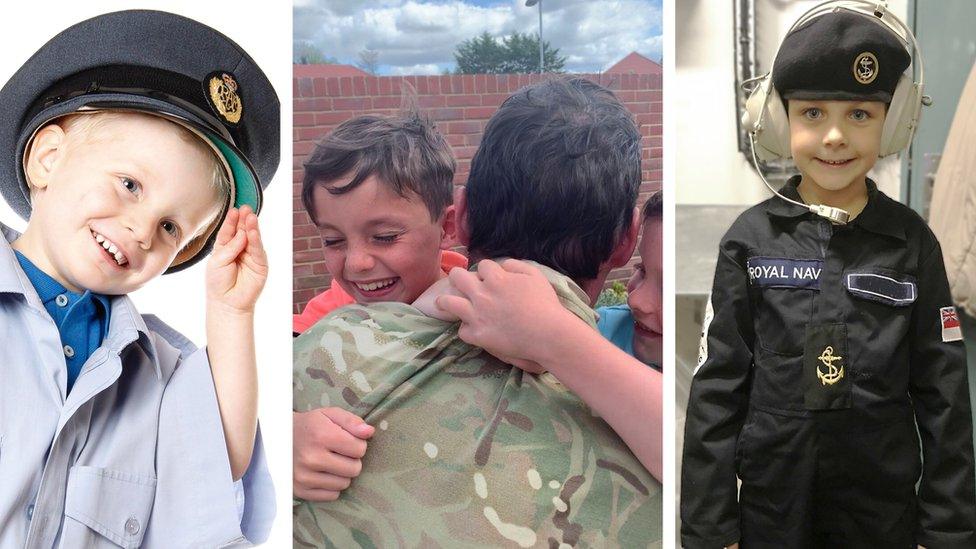Remembrance Sunday 2021: What is it?
- Published
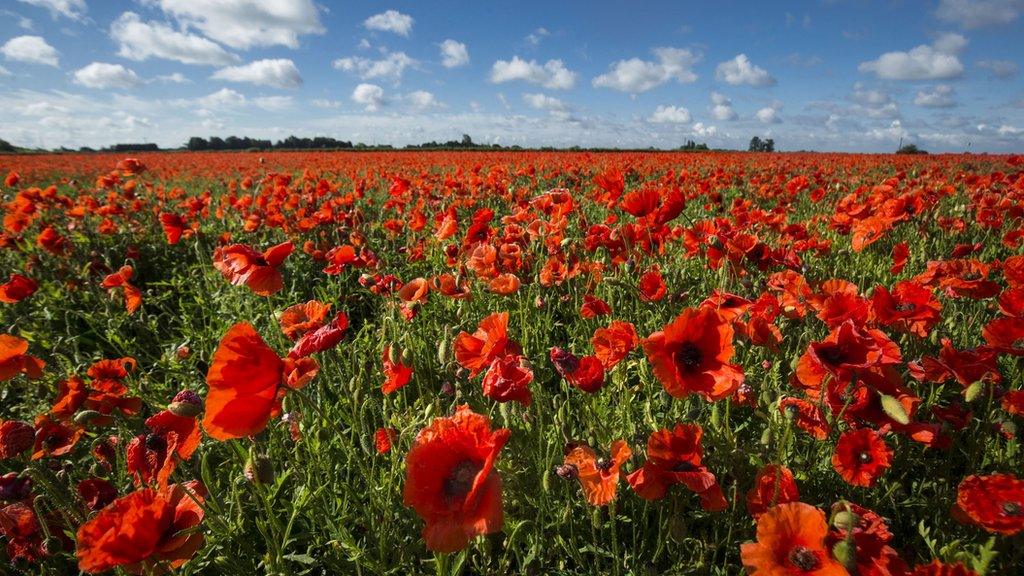
Poppies are worn by millions as a symbol to remember all of the people who have given their lives for their country in war
Remembrance Sunday is marked on the closest Sunday to Armistice Day, also known as Remembrance Day.
It usually features the National Service of Remembrance at the Cenotaph in London and will be held this Sunday at 11am.
The Royal Family is expected to pay tribute at the ceremony.
Serving and former members of the armed forces, representatives of Commonwealth nations and senior British politicians will join her.
Meanwhile politicians across the UK will also be holding special events to mark remembrance Sunday.
Like Armistice Day, Remembrance Sunday will see the nation fall silent at 11:00 to remember all those who gave their lives in wars.
What is Remembrance Day?
Remembrance Day marks the day World War One ended, at 11am on the 11th day of the 11th month, in 1918.
The anniversary is used to remember all the people who have died in wars - not just World War One.
This includes World War Two, the Falklands War, the Gulf War, and conflicts in Afghanistan and Iraq.
How was Remembrance Day marked this year?
Ceremonies at war memorials, cenotaphs and churches took place throughout the country, as well as abroad.
Members of the Royal Family and politicians attended memorial services and the UK fell silent and came together to remember.
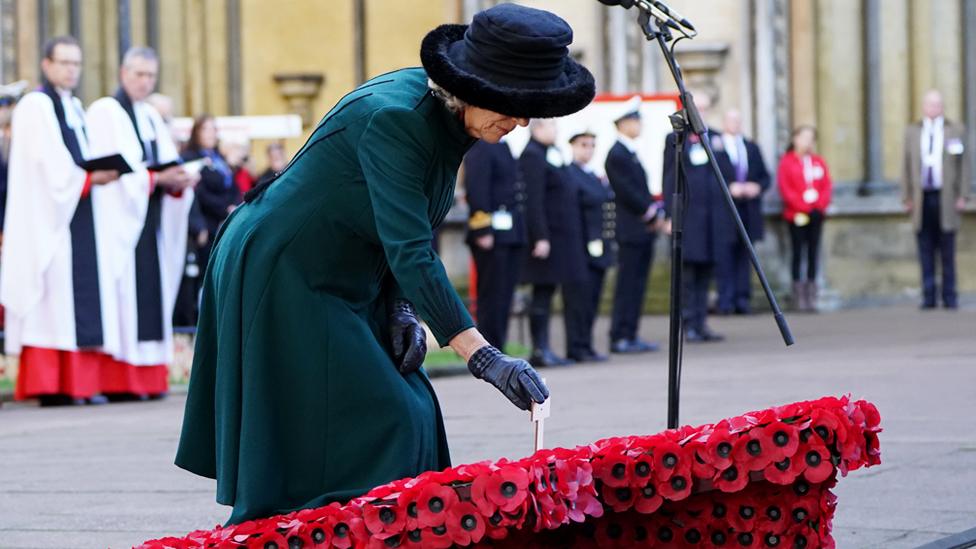
The Duchess of Cornwall laid a cross amid the poppies at the Field of Remembrance outside Westminster Abbey, London
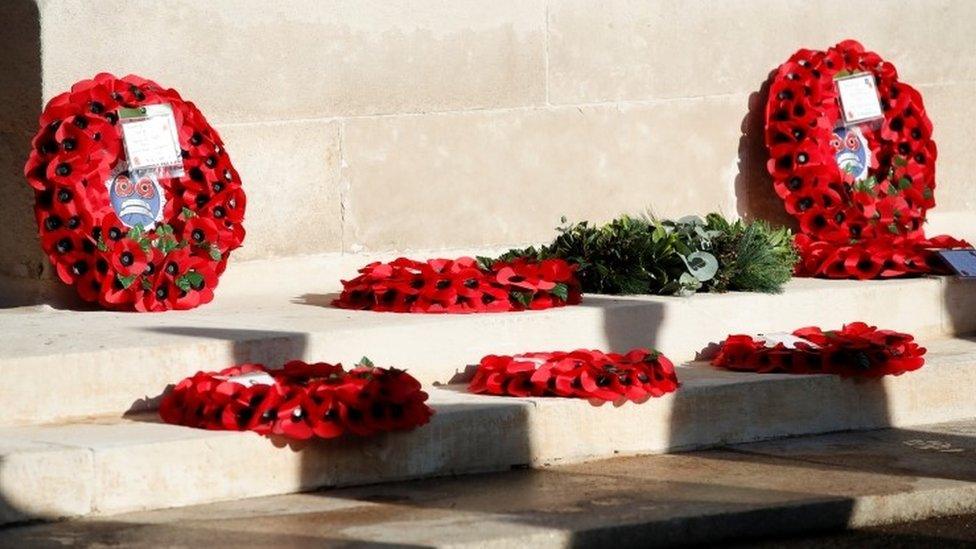
....and poppy wreaths were laid at the nearby Cenotaph - a war memorial which was put in place at the end of World War One
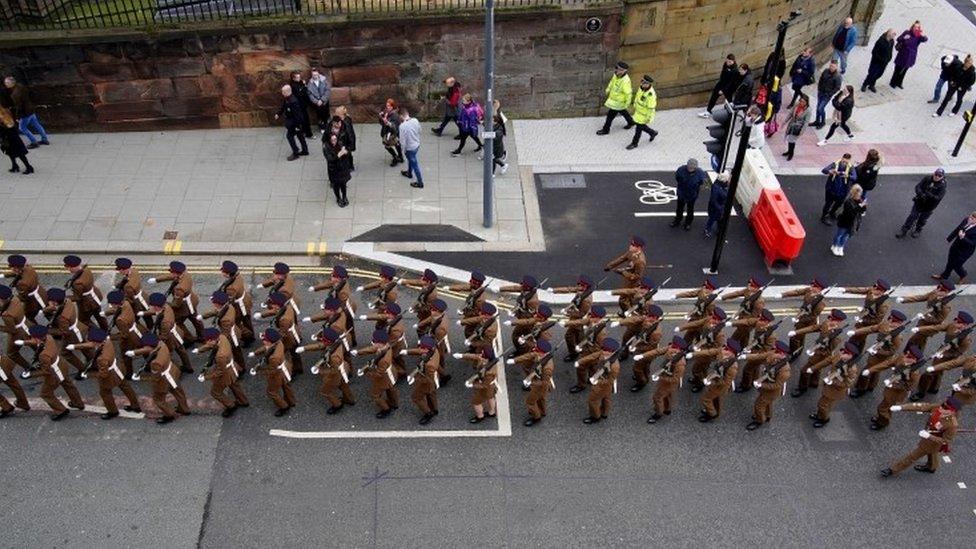
In Liverpool, 1st Battalion of The Duke Of Lancaster's Regiment marched through the streets before the city observed the two-minute silence at 1100
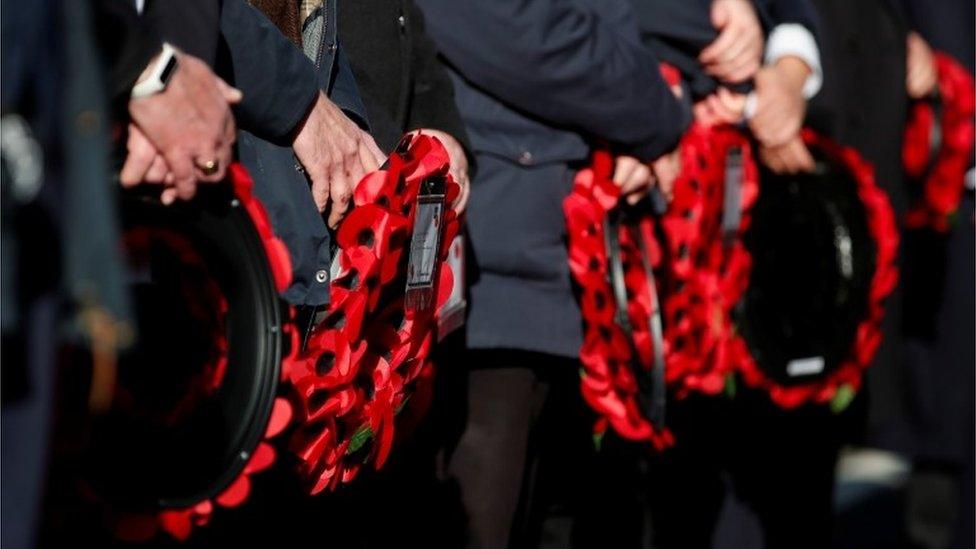
People holding poppy wreaths paused to observe a two-minute silence at the Cenotaph in London
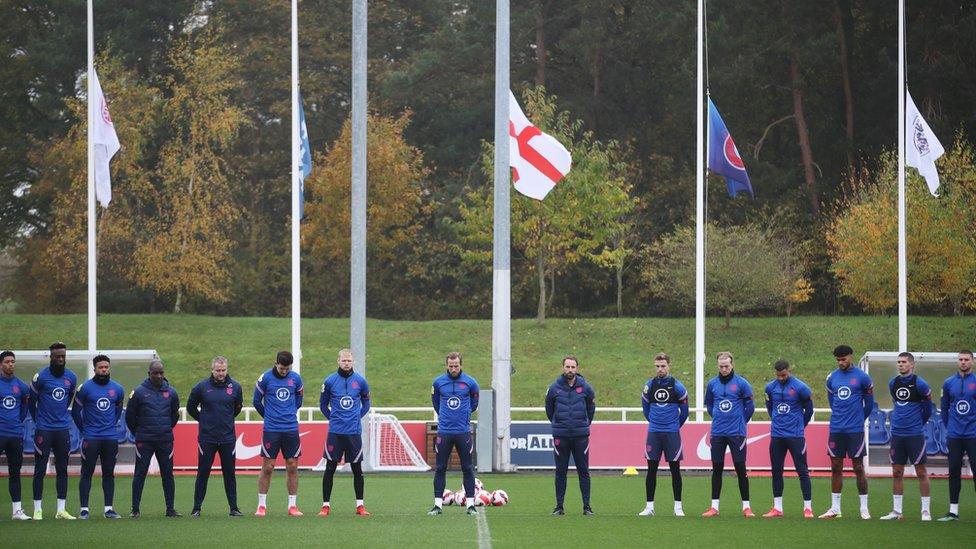
All over the UK, people fell silent, including England manager Gareth Southgate alongside his players
Why do we hold a two-minute silence?
The first two-minute silence in Britain was held on 11 November 1919, when King George V asked the public to observe a silence at 11am.
This was one year after the end of World War One.
The King made the request so "the thoughts of everyone may be concentrated on reverent remembrance of the glorious dead".
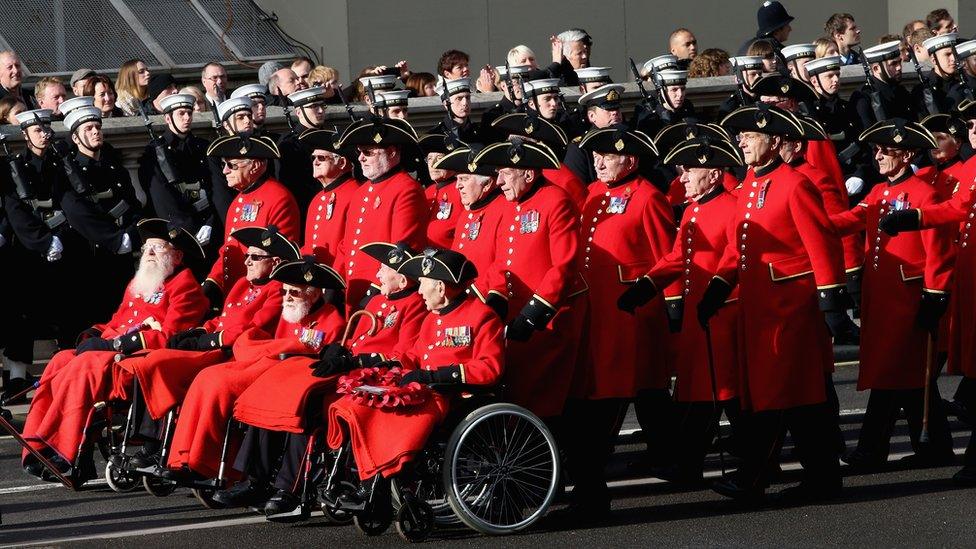
Former soldiers remember those who have lost their lives in war on Remembrance Sunday. You can see the person at the front is carrying a wreath of poppies
Why will some people be wearing poppies?
The reason poppies are used to remember those who have given their lives in battle is because they are the flowers which grew on the battlefields after World War One ended.
This is described in the famous First World War poem 'In Flanders Fields'.
Ever since then, poppies have become a symbol of remembering, not just those who gave their lives in World War One, but all those who have died on behalf of their country.

Rosemary Powell, 103, was Britain's longest-serving poppy seller. She first helped her mother sell poppies for the Royal British Legion's first Poppy Appeal in 1921 when she was just six years old
The money raised from all the poppies is used to help servicemen and women whose lives have been changed by fighting in wars.
It also helps veterans (former members of the armed forces) who may need to find new jobs or somewhere to live, or any other support they may need.
As well as those who have served, donations are used to help those who have lost loved ones because of wars.
Why do some people choose not to wear a poppy?
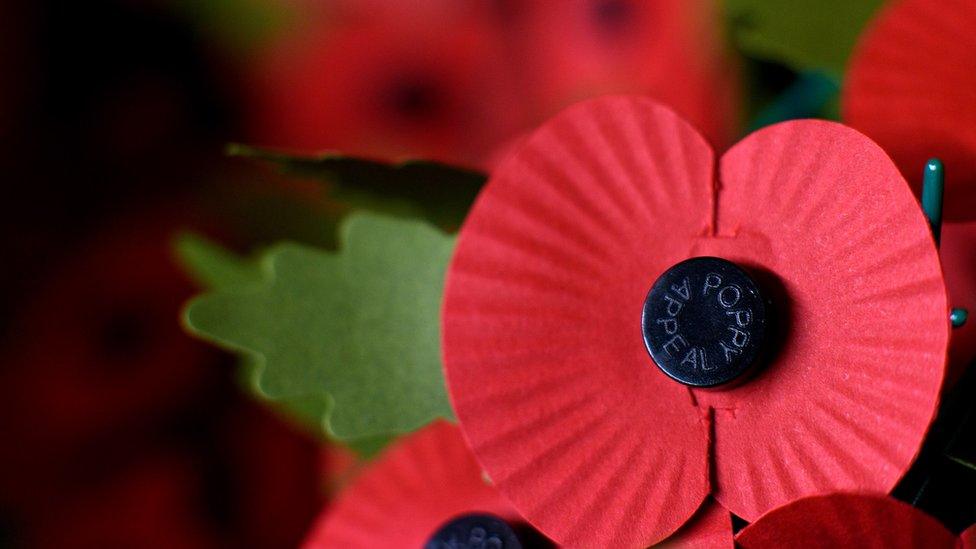
The Royal British Legion says wearing a poppy is a personal choice and it should be about your own thoughts and memories.
However, not everyone chooses to wear a red poppy for many different reasons.
Some people feel the red poppy has become too political, and that some politicians have used the powerful feelings it creates to justify war.
Others refuse to wear poppies because they feel there is too much pressure put on people to wear them.
The Royal British Legion, which runs the poppy campaign each year, says that the red poppy is an emblem of remembrance and hope.
The organisation also says that it should not be seen as a symbol of religion or politics.
"We take the view that the poppy represents sacrifices made in the defence of freedom and so the decision to wear it must be a matter of personal choice and we would never insist upon it," it says.
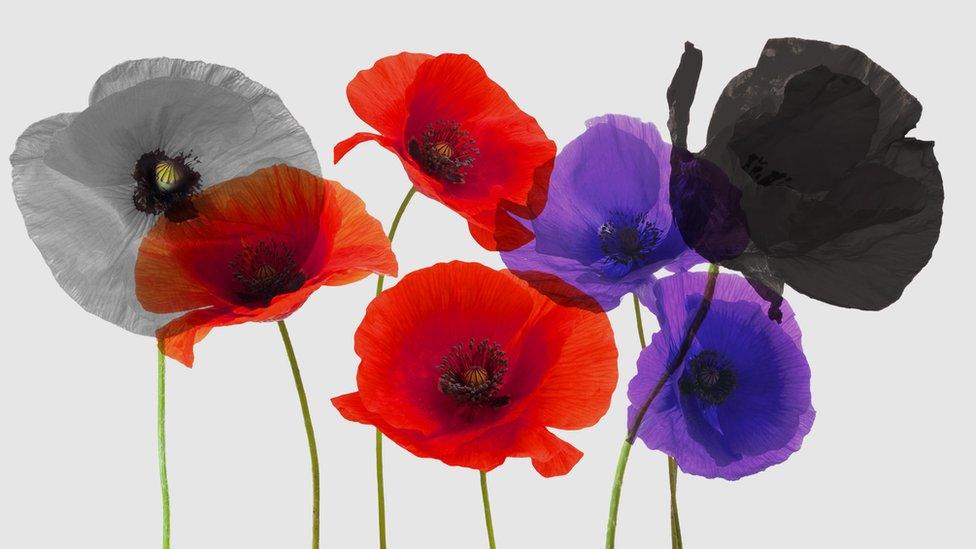
Different coloured poppies have different meanings
What are the alternatives to wearing a red poppy?
There are different colours of poppies that you can wear, which have different meanings. For example, a white poppy is a symbol of remembrance which has a particular emphasis on peace.
While some people appreciate these additional options to express remembrance and respect, others do not agree with them.
There are many ways that people commemorate those who have lost their lives in or been affected by conflict, in addition to wearing poppies. For example, holding a silence or ringing a bell.
- Published10 November 2019
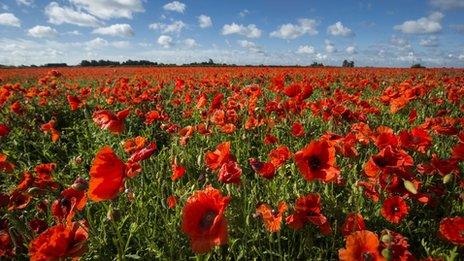
- Published25 October 2019
